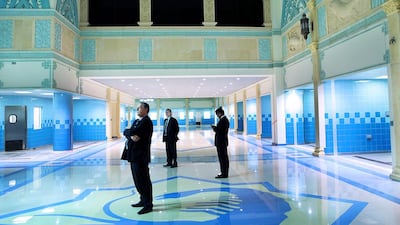ABU DHABI // A huge new fish market is to open at Mushriff Mall in Abu Dhabi after Eid Al Adha.
Up to 500 boats will serve the Central Fish Market’s 75 stalls with local fishermen supplying between 40 and 50 tonnes of fish every day. Fish will also be supplied from China and Japan.
Ali Mohammed Mansour Al Mansouri, president of the Abu Dhabi Fishermen Cooperative Society, said the market would initially handle about 30 tonnes of fish a day, but this will increase to 50 tonnes a day when the market is better established. Six four-tonne refrigerators will transport fish to the market around the clock. The world’s largest fish market, Tsukiji Market in Japan, features 300 stalls and deals with almost 2,000 tonnes a day.
Plans to open the market were announced in 2007. It was scheduled to open with the mall in 2011, but was hit by delays. The market will be run by LuLu Hypermarkets and provide about 100 jobs.
Staff will cook fish on demand for customers either to take away or to eat at a seating area. Customers will be able to choose whether the fish is fried or barbecued and may even request it to be marinated.
“We expect customers to come from Abu Dhabi and all other emirates as the market will have types of fish that are not available at other markets in the country,” said Mr Al Mansouri.
He said he expected that in time the market, which will operate between 7am and 10pm daily, would become a tourist attraction.
anwar@thenational.ae

